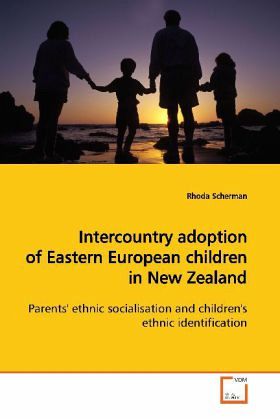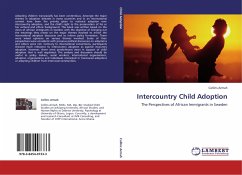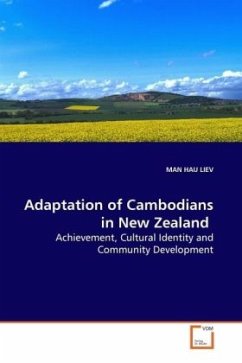
Intercountry adoption of Eastern European children in New Zealand
Parents' ethnic socialisation and children's ethnic identification
Versandkostenfrei!
Versandfertig in 6-10 Tagen
52,99 €
inkl. MwSt.

PAYBACK Punkte
26 °P sammeln!
Virtually all of the research on the ethnic identitydevelopment of internationally adopted children hasbeen on transracial adoptions. Little is known aboutthe ethnic socialisation of children raised inracially similar adoptive homes. This book describesa study involving 162 New Zealand families ofEuropean descent, with children adopted predominatelyfrom Eastern Europe, who were surveyed on theirattitudes of the importance of the children''s birthculture. Results showed that the majority of familiesengaged in cultural activities, made efforts tosocialise with people of the birth culture andexpr...
Virtually all of the research on the ethnic identity
development of internationally adopted children has
been on transracial adoptions. Little is known about
the ethnic socialisation of children raised in
racially similar adoptive homes. This book describes
a study involving 162 New Zealand families of
European descent, with children adopted predominately
from Eastern Europe, who were surveyed on their
attitudes of the importance of the children''s birth
culture. Results showed that the majority of families
engaged in cultural activities, made efforts to
socialise with people of the birth culture and
expressed a desire that their children ethnically
identify with the birth and New Zealand cultures. A
sub-sample of adopted children was also surveyed on
their self-concept and ethnic identification.
Overall, the study s findings suggest that the
adopted children are well adjusted, interested in
their ethnic origins, and being parented by New
Zealanders who support the children s interest in
their birth culture. For anyone wishing to adopt
cross-culturally, or working in the field, this book
offers theoretical and empirical information on
ethnic socialisation in intercountry adoptions.
development of internationally adopted children has
been on transracial adoptions. Little is known about
the ethnic socialisation of children raised in
racially similar adoptive homes. This book describes
a study involving 162 New Zealand families of
European descent, with children adopted predominately
from Eastern Europe, who were surveyed on their
attitudes of the importance of the children''s birth
culture. Results showed that the majority of families
engaged in cultural activities, made efforts to
socialise with people of the birth culture and
expressed a desire that their children ethnically
identify with the birth and New Zealand cultures. A
sub-sample of adopted children was also surveyed on
their self-concept and ethnic identification.
Overall, the study s findings suggest that the
adopted children are well adjusted, interested in
their ethnic origins, and being parented by New
Zealanders who support the children s interest in
their birth culture. For anyone wishing to adopt
cross-culturally, or working in the field, this book
offers theoretical and empirical information on
ethnic socialisation in intercountry adoptions.












